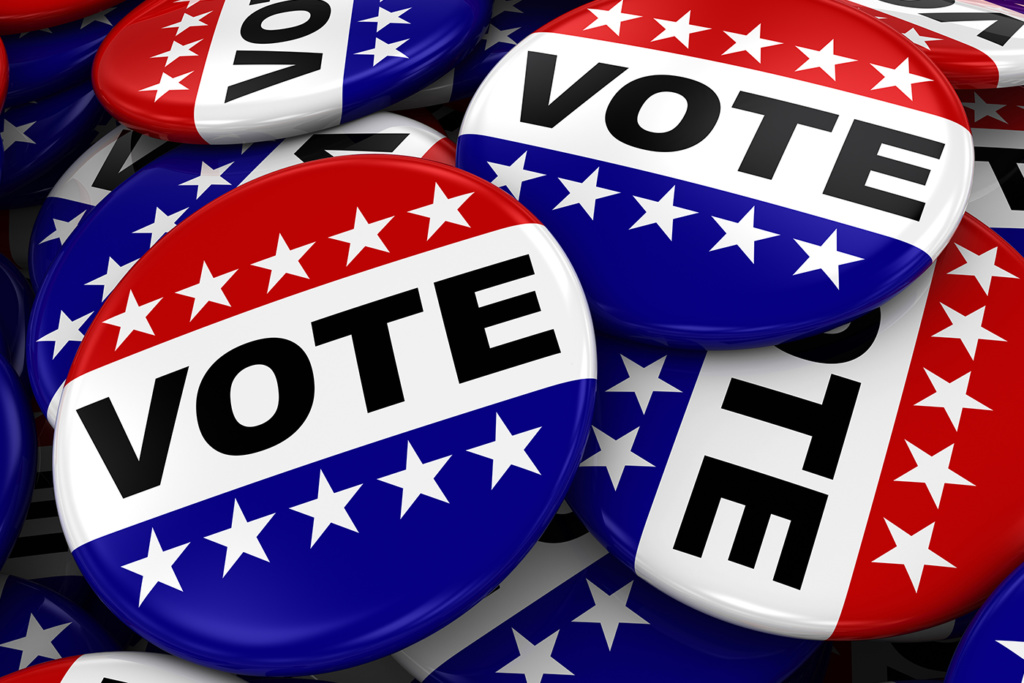There’s a great moment in the show The Newsroom, an HBO drama about the operations of a cable news organization. As the 2012 election night coverage is about to begin, the news director shows photos taken that day to his entire staff. “This is China. People have their picture taken pretending to cast a vote,” he says. “In India, they’re waving flags and having viewing parties to watch the coverage. In South Korea, they’re watching an election map, a mock ballot box in Senegal. And that’s our ambassador in Hungary having a pizza party. Our elections are the envy of the world.”
And he’s right. From London to Tokyo, to the heart of Africa, to the forgotten corners of our planet where people listen in via radio, our presidential elections are the world’s Super Bowl — which is why it’s so imperative that we be a part of them. Unfortunately, there are people in China and Senegal who will cast a pretend vote for a leader in a country they don’t even live in, but there are people in the United States that won’t even take the effort to drive a few miles or blocks to a poll to cast one themselves.
We try not to, but we do take democracy for granted more often than we realize. We the people have been electing our national leader for more than 200 years. Even in the 21st century, we still go to bed every night in a world where dictatorships still rule supreme and where many people in many different countries are still not allowed to vote.
And hey, nobody said we were perfect either. At the birth of our republic, only white men who owned property were permitted to vote. It would take almost another hundred years before every American man had the ability, and then another 50 years before that right extended to women.
But that’s why it matters so much to many of us. And why it should matter to all of us. The fact is, for the last few decades, only about half of people eligible to vote actually do so in presidential elections — and even less do in midterms. Why? There are a lot of reasons people say they don’t vote. But probably the most common one I hear is “because my vote doesn’t matter.”
Maybe you live in a state like California or Oklahoma, where we already know Hillary Clinton and Donald Trump will win respectively. I live in New York. I’m well aware Clinton will win the state’s 29 electoral votes. But that doesn’t keep me from voting. There are more races than just the one for president after all. There’s every U.S. House seat and some Senate and gubernatorial seats up for grabs, as well as races for state legislators down to family court judge. And if we want to talk about votes not mattering, those races are far more likely to directly affect your life than the one for the Oval Office.
Others who don’t vote say it’s because our elections are really decided by powerful political parties, corporations and big money. And sadly, we do live in an age where dollar signs are playing an increasingly hostile role in the way we choose our leaders and how they act once they’re chosen. Be that as it may, money’s influence only goes so far.
I first voted in 2012. I remember it well. I went down to my local polling place, waited in line and filled out a ballot surrounded by cardboard walls. There was no money involved. There were no corporations hovering over my shoulder, dictating me who to vote for. For a few minutes, I had the power. I was the one who was determining the future of my government at every level. No matter how much big money dominates our politics, that voting booth is still controlled by the individual. And that will always be more powerful than the money in our politics.
But most importantly, voting isn’t just powerful. It’s personal. It’s ours. The talk of “strategic voting” that has been a part of this election for so long is completely contrary to the whole purpose of the process. A vote for Donald Trump is a vote for Hillary Clinton in November, is what Ted Cruz said throughout the primaries. A vote for Bernie Sanders on Nov. 8 will be a vote for Donald Trump, others claim. A vote for Gary Johnson or Jill Stein is a wasted vote, party members will chant.
What?
The freedom to vote also comes with the freedom to decide how to vote. “Vote your conscience,” Ted Cruz said at the Republican National Convention. While it received harsh criticism, it really can’t be said any better or more plainly. It’s the way it’s supposed to be. If you want to vote for Trump, fine. If you want to vote for Clinton, fine. If you want to vote for a third party candidate, go for it. But do it because that’s who you want, not what your party, friends, family or favorite actor wants, and definitely not who I want.
But what I do want is for you to vote. It’s not just the action of deciding who will represent you from the White House all the way down to your county courthouse. Voting is the act that defines democracy itself and the act that makes this country the wonderful place it is. As a citizen of that country, voting is our first responsibility and our last defense. Votes do matter. Votes do count. And a vote for someone you believe in is never a wasted vote. The only vote that’s ever wasted is the one that is never cast.



